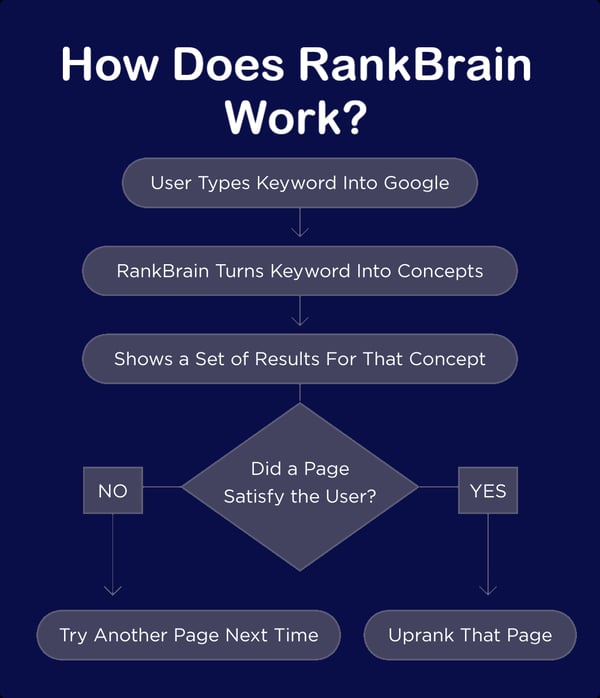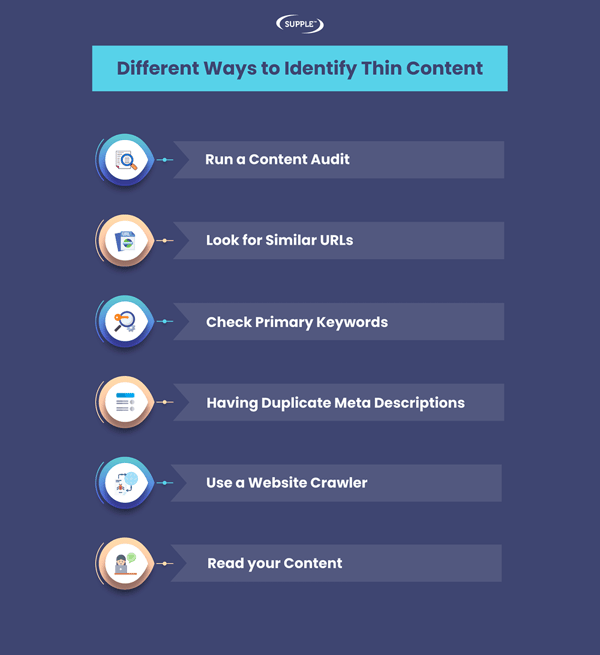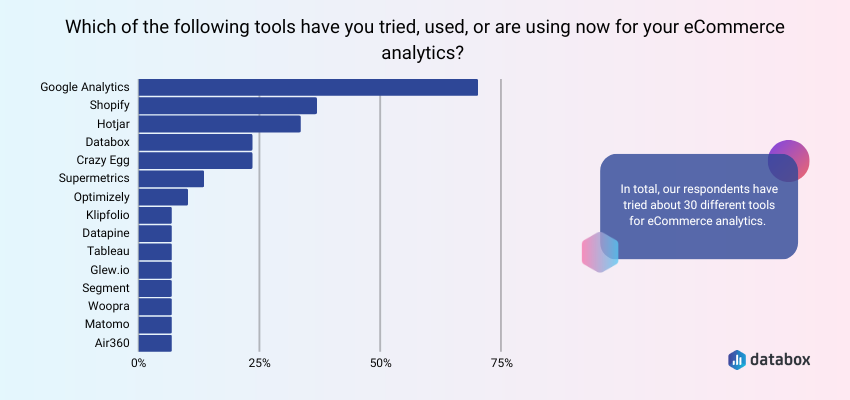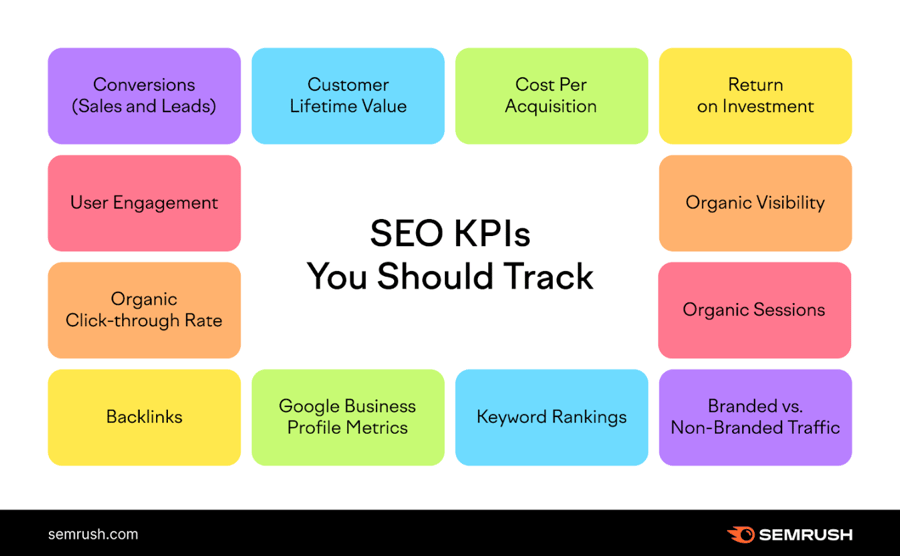
With over 8.5 billion searches per day, Google has an immense impact on how people find and purchase products online.
But here's the twist — it's not just your regular Google anymore. The impact of Google's AI search on eCommerce businesses is nothing short of revolutionary.
Google's AI search uses artificial intelligence (AI) and machine learning to understand user intent, delivering more precise and personalized results.
In this post, we'll delve into the fascinating world of Google's AI search and explore its profound effects on online businesses.
We'll uncover the challenges and opportunities it creates, offering insights into how to harness its power to propel your online retail venture forward.
Read on to understand what's in store for the future of eCommerce.
How Google's AI Search Works
To understand the profound impact of Google's AI search on eCommerce businesses, you must grasp the inner workings of this powerful technology.
Google's AI search is a marvel of artificial intelligence. To deliver results that aren't just relevant but highly personalized, it employs:
- Natural language processing (NLP)
- Machine learning (BERT, RankBrain)
- User behavior analysis (Knowledge Graph, Discover)
Natural Language Processing
At the core of Google's AI search is natural language processing (NLP). This technology enables search engines to understand language as humans do. It analyzes search queries based on the full context of words and sentences rather than just keywords.
Google trains machine learning algorithms on massive datasets to understand the nuances of human language. When users type or speak search queries, NLP allows Google to comprehend the true meaning of their words.
For eCommerce businesses, this NLP capacity enables Google to interpret product and transaction-related searches better. These include complex, conversational search queries.
BERT
BERT (Bidirectional Encoder Representations from Transformers) is another feature of Google’s AI search. It enhances Google's understanding of the context within a search query. This is particularly important for longer, more conversational queries.
Indeed, the BERT algorithm can analyze the words before and after a keyword to provide more accurate results.
For instance, if a user searches "red casual mini dresses," BERT understands the color, style, and length that’s been specified. For an eCommerce company selling mini dresses, BERT can boost the visibility of highly relevant listings in search results.
RankBrain
RankBrain similarly uses machine learning to interpret meaning in searches. This algorithm can adjust web page rankings based on user feedback, such as click-through rate, dwell time, and bounce rate.

Source: SEO Forum
As users interact with search results and click on certain products or pages, RankBrain learns and adapts. This allows it to fine-tune the rankings of eCommerce businesses based on what users find valuable.
Knowledge Graph
Google also has a feature known as the Knowledge Graph. This SERP feature analyzes the connections between real-world entities to enhance results. Fashioned after most knowledge bases, Knowledge Graph provides rich, structured information about people, places, and things.
If someone searches for a product name, Knowledge Graph can leverage brand information and product specifications to showcase the most relevant listings higher up.
Discover
Also contributing to the rise of voice and conversational search is Google's Discover. To provide personalized recommendations, it draws on users’ past searches, browsing behavior, and interests.
If a shopper frequently browses hiking gear, Discover may recommend related products — even if the searcher hasn't explicitly expressed interest in them. As such, its suggestions influence the content users encounter.
The Challenges and Benefits Google’s AI Search Creates for eCommerce Businesses
Google's AI search is constantly evolving and improving. This means that online businesses need to adapt and innovate to stay ahead of the competition.
While the impact of Google’s AI search on eCommerce businesses is largely a net positive, it still poses some significant challenges. These require strategic adaptation.
The Challenges of Google’s AI Search for eCommerce
1. Increased competition.
A significant impact of Google's AI search on eCommerce businesses is increased competition.
Google's AI search aims to provide each user with the most relevant and valuable results. This means consumers have more options to choose from.
Online businesses must optimize their websites and content for various reasons. These include keywords, intent, location, device, and personalization. Standing out in today's crowded digital marketplace requires rigorous optimization.
2. Frequently changing algorithms.
Google's AI algorithms are constantly evolving. This means that what worked for SEO and rankings in the past may not work in the present.
Businesses must constantly review best practices and tweak strategies accordingly.
Keeping up with the changing algorithms and ranking factors used by Google's AI search can be challenging. According to Attrock, you must write relevant, well-researched, and user-oriented content to rank high on Google.
3. Rise in content quality standards.
AI-driven search places a premium on high-quality content. Google's AI algorithms favor websites with fresh, high-quality content that engages users over thin content.

Source: Supple
Thin or duplicated content could get buried, so eCommerce businesses must create unique and helpful content. This way, they don't risk losing valuable traffic and conversions.
The Benefits of Google’s AI Search for eCommerce
1. Reaching new audiences.
Google's AI search can help online businesses reach new and potential customers. Its AI tools, like Discover, show products to new shoppers who may not have directly searched for them — but whose behavior shows possible interest.
With keyword research tools, eCommerce businesses can discover what their target audience is searching for. They can then create content that answers their questions and solves their problems.
A good way to do this is to optimize for long-tail keywords and conversational queries. This can expand their reach and increase visibility and click-through rates.
2. Creating engaging content.
The demand for high-quality, informative, and engaging content aligns perfectly with the interests of eCommerce businesses.
Fortunately, businesses can exploit various AI capabilities to optimize their content for conversational searches.
Some of the best Chrome extensions to help maximize content for AI search include ChatGPT for Google and Promptheus. Other AI-based tools like Grammarly, Hemingway, and Yoast SEO can help improve writing style, readability, and SEO.
By producing content that adds value and solves users' problems, online retailers can simultaneously improve their SEO and user experience.
3. Building trust and loyalty.
Google's AI search can help eCommerce businesses build customer trust and loyalty by providing relevant and valuable information. It favors brands and companies that consistently deliver excellent user experiences.
Online companies focusing on trust-building, delivering superior customer service, and providing accurate product information can build long-term customer loyalty.
Collecting and displaying your website's embedded Google customer reviews and ratings can significantly enhance credibility and drive conversions.
How eCommerce Businesses Can Adapt & Thrive With Google's AI Search
In the age of AI, online businesses must adapt to and harness this transformative technology's power to thrive in a competitive online marketplace.
Here are strategies and practical tips to help eCommerce businesses stay ahead of the curve.
1. Leverage analytics and user insights.
One of the key features of Google's AI search is that it can understand the intent and context behind a user's query.
So, online businesses must conduct keyword research based on user intent and natural language rather than merely focusing on exact match keywords. After all, Google's AI search goes further than just matching keywords.
By using analytics tools, eCommerce businesses can gain insights into:
- What their customers are searching for
- How they're searching for it
- The effectiveness and yield of their content
Some analytics tools you could use include Google Analytics, Hotjar, and Optimizely.

Source: Databox
They can help eCommerce businesses create content that answers questions and solves problems. Your content should also provide value to your customers, not just promote your products or services.
2. Use structured data and schema markup.
Another way that Google's AI search can benefit eCommerce businesses is by using structured data and schema markup to enhance their visibility and click-through rates on the search engine results pages (SERPs).
Structured data and schema markup are code snippets that provide additional information about a webpage. This includes product details, ratings, reviews, prices, and availability.
By adding structured data and schema markup to their web pages, online businesses can help Google understand their content better.
This can result in the display of rich snippets, such as images, videos, ratings, and prices, on the SERPs. These rich snippets attract more attention and clicks from users. The result is more traffic and conversions.
3. Create valuable content.
Content is king in the era of Google’s AI search. As such, eCommerce businesses need to create content that answers questions, solves problems, and provides value.
A knowledge base is the perfect example of a self-service online library that provides information about a topic, product, or service.
Content can take various forms. These include blog posts, product descriptions, reviews, testimonials, FAQs, tutorials, videos, and podcasts. The key is to create informative, engaging, original, and optimized content for SEO.
These tips can come in handy:
- Integrate target keywords naturally in headings, body text, meta tags, URLs, and image descriptions.
- Write clearly, simply, and conversationally, not technically.
- Organize content effectively in a logical structure and include visual elements so it's scannable.
- End with a strong and effective CTA to drive conversions.
4. Optimize for mobile devices and voice assistants.
As more users access the internet through mobile devices and smart speakers, online businesses need to optimize their websites for these platforms.
Google's AI search can detect the device and the mode of input that a user is using and deliver results accordingly. So, eCommerce businesses must ensure their websites are responsive, fast-loading, easy to navigate, and secure on mobile devices.
They must also optimize their content for voice search. Natural language, conversational tone, long-tail keywords, and question-and-answer format can help.
5. Diversify revenue streams by offering complementary products or services.
As we've already seen, a negative impact of Google's AI search on online businesses is increased competition. This comes from other eCommerce businesses or platforms that offer similar products or services.
To overcome this challenge, online businesses must diversify their revenue streams by offering customers complementary products or services that add value.
For example, online businesses can explore how to sell online courses. This can open up a profitable eCommerce niche that caters to the growing demand for online education.
It can also help online businesses establish themselves as experts, build trust and loyalty with their customers, and generate recurring income from them.
A great example is Cisco, which offers certifications for network engineers implementing the company's networking solutions. It earns from both the courses and networking products while boosting its profile as an authority in this niche.
6. Test and measure to optimize for Google's AI Search.
Online businesses need to test and measure their performance and user feedback regularly.
With the frequent updates and changes to Google's algorithms and ranking factors, eCommerce businesses must monitor the following:
- SEO metrics such as traffic, rankings, bounce rate
- User feedback such as reviews, comments, ratings
- Conversions and revenue

Source: Semrush
By testing different elements of their websites, such as headlines, images, videos, content, and layout, online businesses can find out what works best for their audience and optimize their websites accordingly.
7. Keep learning and improving eCommerce SEO skills.
The most important thing online businesses need to do in the era of Google's AI search is to keep learning and improving their eCommerce SEO skills.
Google's AI search keeps evolving and improving, and so should online businesses.
Keep up with the latest developments and best practices in eCommerce SEO by following blogs, podcasts, webinars, and courses that provide valuable insights.
Online businesses can even learn from life coaching techniques to master the art of inspiring customers.
Thrive with Google’s AI Search
There can be no underestimation of the impact of Google's AI search on eCommerce businesses.
It offers challenges like increased competition and tremendous opportunities like expanded audience reach.
Online businesses must adapt with analytics, content optimization, and continuous learning to thrive.
Adapt quickly by leveraging AI to enhance discoverability, provide value, and make meaningful customer connections.
Master the transformative power of Google's AI search and secure your future success.





Leave a reply or comment below